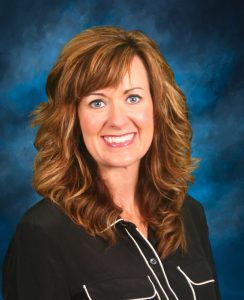April 17, 2020
By: Dwayne Page
Students in the DeKalb County School District may be out of the classroom due to COVID-19 but it’s no vacation for them.
Anticipating early on that the coronavirus pandemic would probably shut down schools, administrators developed and later initiated a plan to help students maintain a routine of studying while at home through online assignments or packets of lesson plans sent to them and that will continue for the remainder of this academic year through May.
“Teachers have been staying in touch with their students either online and other means to help them with their homework and to just do a welfare check so that the kids will have some contact with their teachers,” said Michelle Burklow, Supervisor of Instruction for grades K-5.
Although the State Board of Education recently voted to freeze grades of Tennessee students where they were as of March 20 for the remainder of the academic year, Burklow said the homework allows the kids to improve on those grades and to keep them from falling behind.
“Our whole goal here is to prevent a spring and summer slide and maintain the skills the kids had before schools were closed so they have this opportunity to polish up on the skills that they have already practiced and to keep those sharp for when they do come back to school,” said Burklow.
The change leaves the option open for students to improve grades if their local school district can provide and they can access materials online or through some form of distance learning. As it stands now, the remote learning can only improve, not lower, a grade.
For 6th to 12th grade students, most are being served through Google Classroom, a streamlined, easy-to-use tool that helps teachers manage coursework. With Google Classroom, educators can create classes, distribute assignments, grade and send feedback, and see everything in one place.
“We have been using Google Classroom for three years and with the high school students having their devices at home it has been a fairly easy transition because our teachers had already been posting things on Google Classroom so our students are familiar with and have been using it for a long time. Some students prefer to have the packets in their hands to work with and that is fine. We are here to accommodate them too,” said Dr. Kathy Bryant, Supervisor of Instruction for grades 6-12 students.
“One important element is the social emotional aspect for our kids and that they have a purpose every day and when they get on Google Classroom and meet with all their classmates they have that familiarity and are able to interact. That is happening once to three times a week, depending on the week and the teacher but our teachers are meeting with the students online and are able to see their faces and that means a lot,” added Dr. Bryant.
Many Kindergarten to 5th grade teachers are also making use of Google Classroom as well as other platforms in teaching their students.
“Some are meeting with their students through the Google Classroom while others are using the See saw, Facebook, Zoom, or other modes of digital learning. It’s whatever the teacher feels comfortable using with the students. We have left it up to each individual teacher. The schools have narrowed the digital platform they can use because the principal wants to be familiar with it in case there are any questions. Most of them are using Seesaw or Google Classroom,” said Burklow.
Another source is ReadyRosie, an early education online platform, to provide short videos and free resources with simple, engaging activities for Tennessee families and children, ages pre-K through 3rd grade, to do at home.
“ReadyRosie is an app that parents can download on their phone and it is another resource from the state to help families engage with their children during this time by doing simple, instructional activities at home while promoting learning and bonding with their children.” said Burklow.
Through ReadyRosie, all families have access to ReadyRosie Modeled Moment videos, which equips them with simple and fun activities to help their children learn while at home. Around two minutes long in both English and Spanish, the video “moments” feature real families demonstrating instructional activities that parents can then replicate with their own children and are rooted in learning goals for children on topics such as literacy, early math, health and well-being.
The ReadyRosie platform is available for Tennessee families through September 1. Families can easily register for free today here, https://readyrosie.com/tn/, and can sign up to receive weekly text messages or emails with curated playlists of activities.
The state has also contracted with six PBS television stations to deliver daily instructional content for students during COVID-19 school closures. This partnership provides all students with access to daily learning opportunities right in their own homes. These stations deliver two hours of programming with high-quality instructional content from 10 a.m. to 12 p.m. CST. Four hours of content are also being streamed overnight, which viewers can watch live or record.
In addition to freezing student grades, the Tennessee State Board of Education recently approved other emergency rules for the rest of the school year.
In a unanimous vote, the nine-member board approved a reduction in the number of required credits from 22 to 20 for high school seniors. Those credits must include four math, four English/language arts, three science and two social studies credits. In addition, the board formally adopted temporary changes waiving the requirement for seniors to take the ACT and SAT tests to graduate.
Another change removes requirements that students have a focused area of study and pass a comprehensive exam for advanced classes including Advanced Placement and dual credit classes in order to get weighted credit, putting students statewide on the same playing field going into college.
The changes, good for 180 days, also allow no students to be counted absent or truant, a reflection that some students have no access to the internet for online instruction.
Some changes to licensing procedures give teachers an extra year, until the end of August 2021, to complete requirements and also extend the deadline for teachers whose licensing was expiring this year. Teacher evaluations will not be done this school year.





